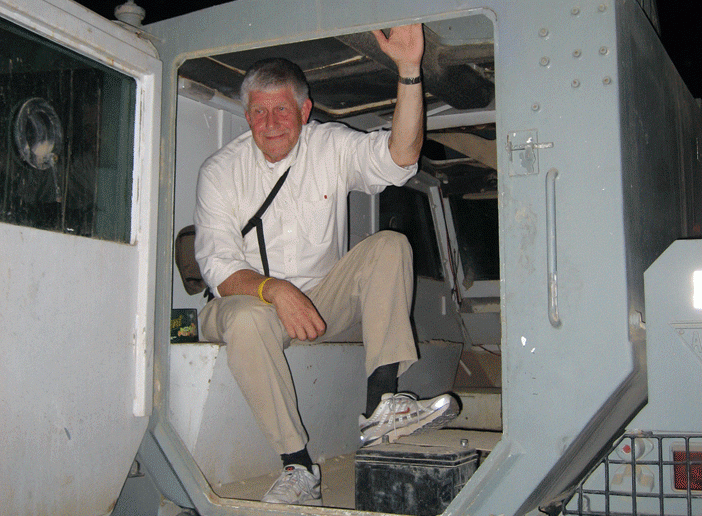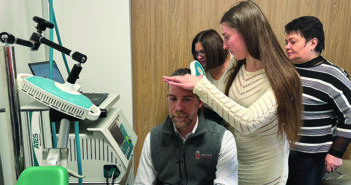Disasters teach that mental health is inseparable from bodily health.
In May 2014, psychiatrist Allen R. Dyer, MD, PhD ’67 MMS’70 received an award from the Iraqi Medical Sciences Association for his humanitarian efforts in Iraq.
Since 2001, Dyer has worked with Iraqi physicians, educators, and government officials to improve the country’s health care infrastructure in a sustainable way. Dyer, who graduated in the charter class of the two-year Brown medical program and went on to get his MD and PhD at Duke University, believes in a “bio-psychosocial-spiritual” approach to medicine, and nowhere is the need more clear for such an integrated approach than in war-torn countries. Iraq, which has been under extraordinary stresses for more than 30 years, experiences an incidence of cancer up to eight times global rates, a higher incidence of heart disease and diabetes, and high rates of depression, Dyer says.
Civilian populations that have endured conflict, loss, and chronic displacement experience what Dyer calls ongoing traumatic stress disorder, and it’s necessary to devote the right health care resources to those people. “You have to look at the whole social organization,” he says. “What is the developmental history of trauma that has led to physiological symptoms? How does a community come together, heal, grow, and thrive? You have to identify the social supports to reinforce resilience.”
Dyer’s work in Iraq began when, as a professor of psychiatry at East Tennessee State University, he was part of a delegation to help the Kurds in Iraq develop a medical infrastructure. He left academic medicine for a time to work as the senior health adviser for the International Medical Corps, where he was involved in disaster response and improving health services around the world. He continues the mission today, as professor of psychiatry and behavioral science at George Washington University (GW).
“One of my key goals at the International Medical Corps, and now at GW, is to increase the knowledge base around global mental health,” Dyer says. “The integration of mental health and primary care is first and foremost a strategy for low- and middle-income countries, but is also important for the US.”
Dyer continues to work with Iraq, setting up continuing medical education programs to help Iraqi medical professionals update their skills in areas such as psychopharmacology, child psychiatry, psychotherapy training, and research.
He believes it is increasingly important to practice medicine that looks beyond diseases, the traditional purview of physicians, and takes into consideration how conflict affects communities. GW is involved in the Palestinian Medical Education Initiative, which supports Palestinians through international partnerships with health sector institutions and clinicians, and mental health is one aspect. “We have learned that poverty in many instances leads to dangerous ideologies,” Dyer says. The strategy lies in a coordinated approach of defense, diplomacy, and development. “What we need now,” he says, “is a humanitarian surge.”




